Hello there! We're excited to share some important news regarding our upcoming maternity care schedule. Over the next few weeks, our dedicated team will be closely monitoring and supporting expectant mothers with tailored appointments and resources. We believe that every journey into motherhood deserves personalized care, so we've designed a schedule that caters to your unique needs. Join us as we delve into the details and explore how we can support you during this beautiful timeâread on for more!
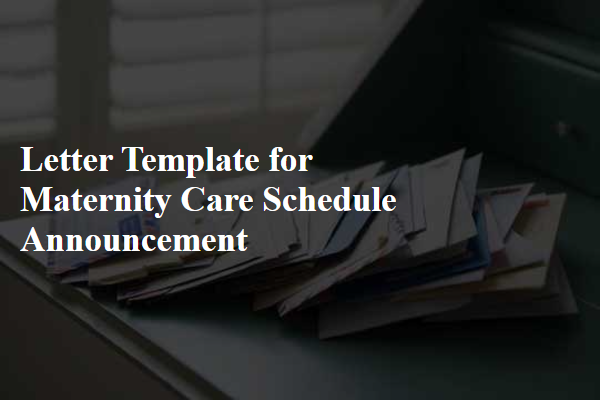
Recipient's understanding of schedule changes
Maternity care schedules require careful planning and communication, ensuring patients understand changes affecting their visits. Various factors such as provider availability (usually more limited during peak delivery seasons like summer), office hours adjustments (typically 8 AM to 5 PM, with some weekend appointments), and necessary follow-up exams (including ultrasounds and prenatal check-ups) can influence appointments. Clarity in communicating these nuanced details fosters better patient understanding, allowing them to adapt to new timelines. Moreover, incorporating alternative options, such as telehealth visits for consultations, enhances access while accommodating patients' needs during this critical period.
Clear timeline and expected dates
During pregnancy, a meticulous maternity care schedule is crucial for the well-being of both the mother and the baby. Key milestones include the first prenatal visit, typically occurring around six to eight weeks into gestation, where initial screenings and tests are conducted, including blood tests and ultrasound evaluations. Subsequent check-ups are usually scheduled every four weeks until the 28th week of pregnancy, at which point appointments often shift to every two weeks, leading up to the final month, when weekly visits become the norm. Important tests, such as the glucose tolerance screening around 24 to 28 weeks, significantly assess gestational diabetes risk. As the due date approaches, educational sessions on labor and delivery may also be integrated, providing essential guidance on what to expect during childbirth. Engaging with healthcare professionals throughout this timeline ensures the mother receives comprehensive support and care, fostering a healthy pregnancy journey.
Contact information for further inquiries
Maternity care schedules play a crucial role in ensuring expectant mothers receive timely and comprehensive medical attention throughout their pregnancy. These schedules often include important events such as prenatal visits, ultrasound screenings, and labor preparation classes. The maternity care facilities, such as the Women's Health Center at City Hospital or the Family Birth Center at Southern Medical Group, typically provide these schedules to enhance maternal and fetal health. For further inquiries regarding specific dates, healthcare provider appointments, or insurance coverage questions, expectant mothers can contact the administrative office at 555-123-4567 or email maternitycare@healthservices.org for personalized assistance.
Expression of support and empathy
Maternity care schedules provide vital healthcare services for expectant mothers. Healthcare providers, anticipating needs, prepare plans that encompass regular check-ups, prenatal consultations, and educational classes. Due dates, typically around 40 weeks from the last menstrual period, underscore the importance of timely appointments. Classes focus on childbirth preparation, newborn care, and breastfeeding education, creating a comprehensive support system. Emotional well-being during pregnancy is crucial, so discussions about mental health resources are included, ensuring mothers feel valued and cared for throughout their journey. This structured approach promotes optimal health outcomes for both mother and baby, reinforcing community support.
Reassurance of continued care and service quality
Maternity care is essential for expecting mothers, especially during the critical prenatal period. Comprehensive support services encompass regular check-ups, nutritional counseling, and emotional wellness resources. Healthcare providers aim to ensure optimal maternal and fetal health, offering personalized care plans tailored to individual needs. The appointment schedule typically spans from the first trimester through postpartum visits, allowing for close monitoring of both mother and baby. Improved communication channels using telehealth options enhance accessibility, ensuring reassurance for expectant parents. Quality of service is a priority, backed by trained professionals who adhere to guidelines from reputable organizations like the American College of Obstetricians and Gynecologists (ACOG). Regular assessments can significantly impact outcomes, fostering healthy developments throughout the pregnancy journey.
Letter Template For Maternity Care Schedule Announcement Samples
Letter template of maternity care schedule for prenatal education sessions.
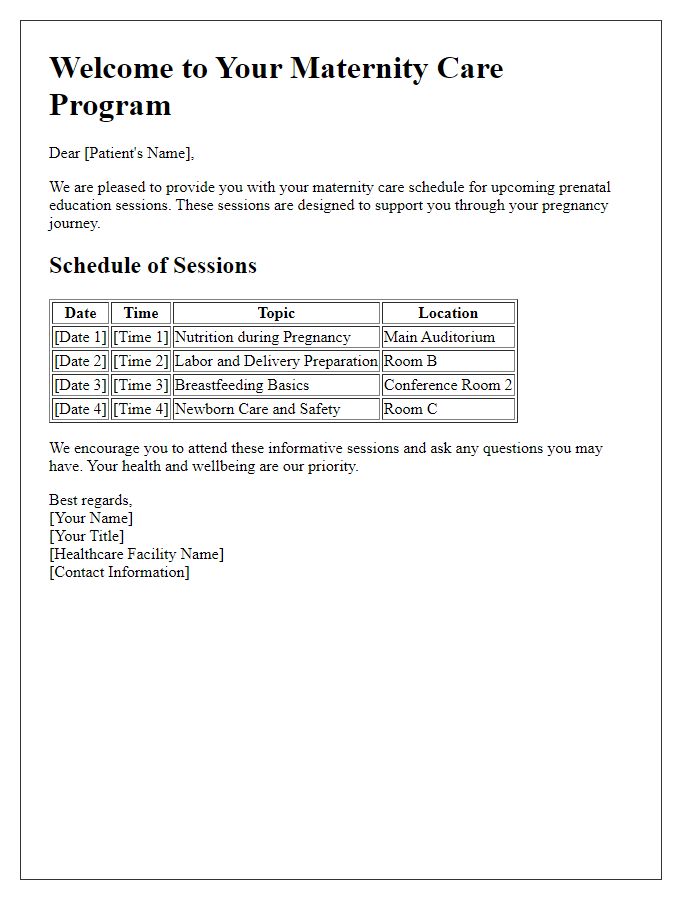
Letter template of maternity care schedule for postnatal follow-up visits.
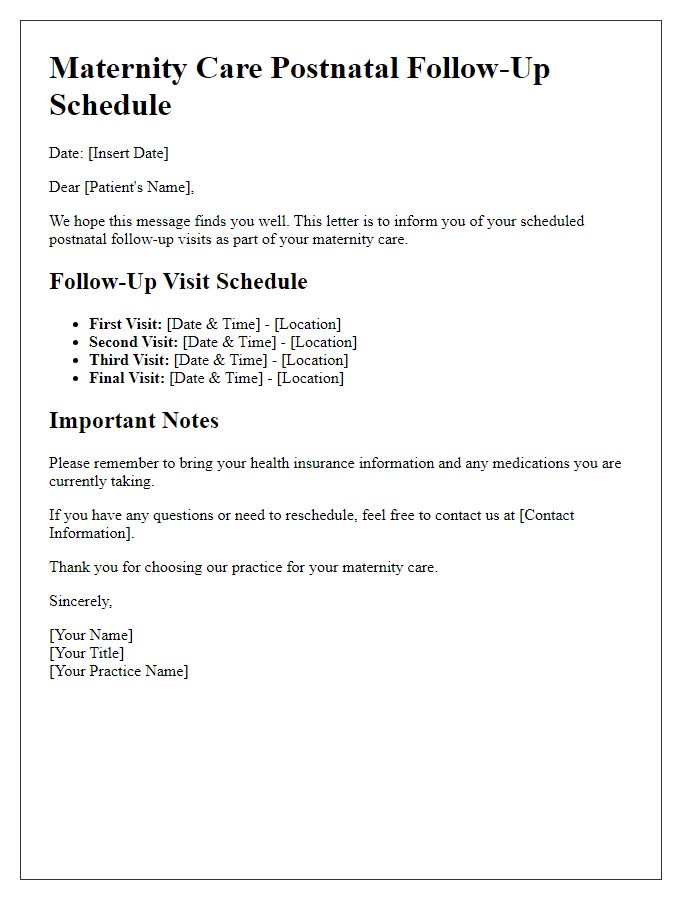
Letter template of maternity care schedule for breastfeeding consultations.
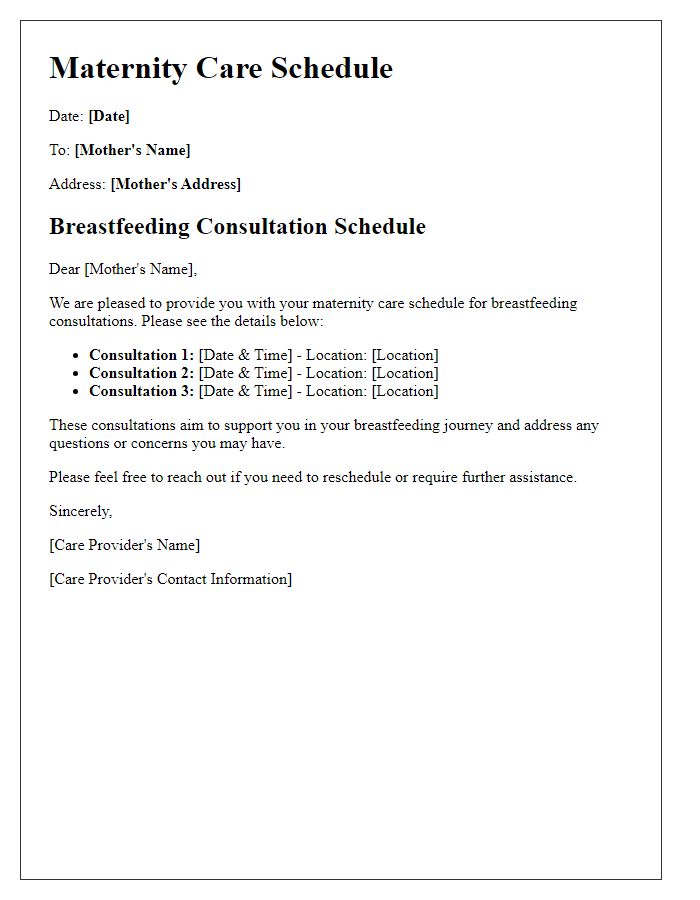

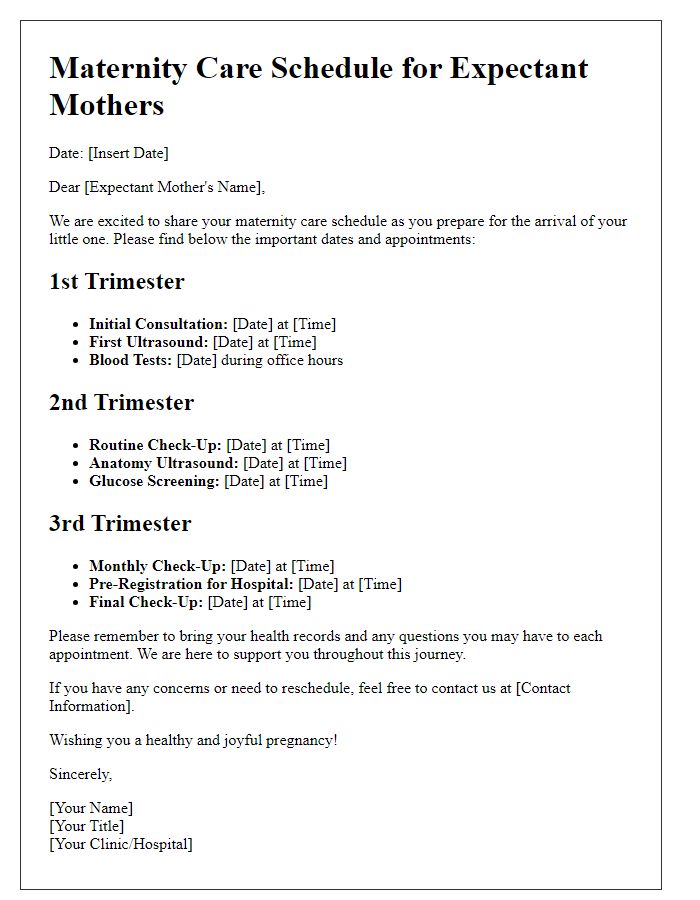
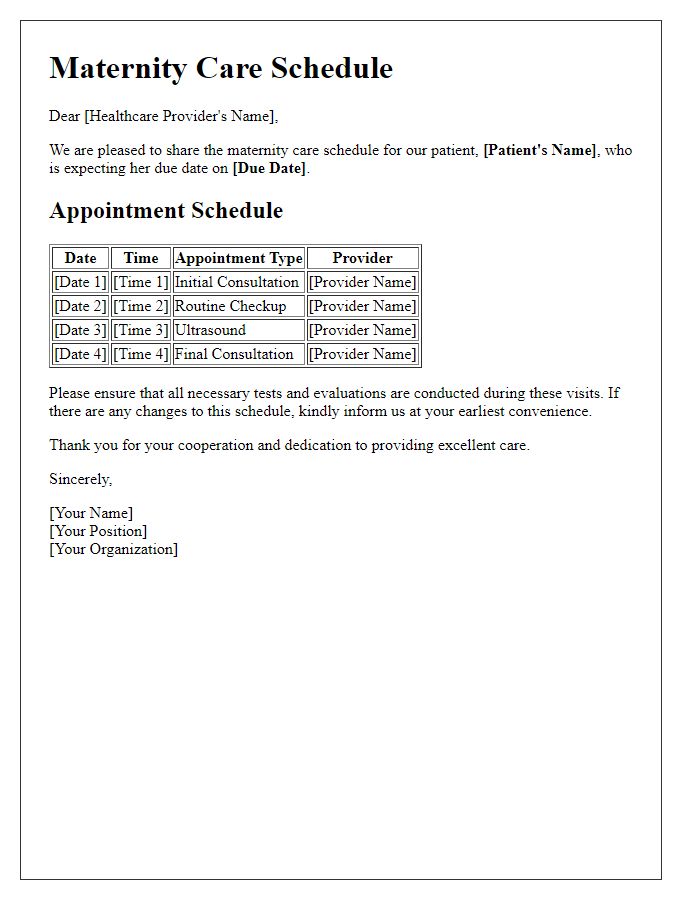
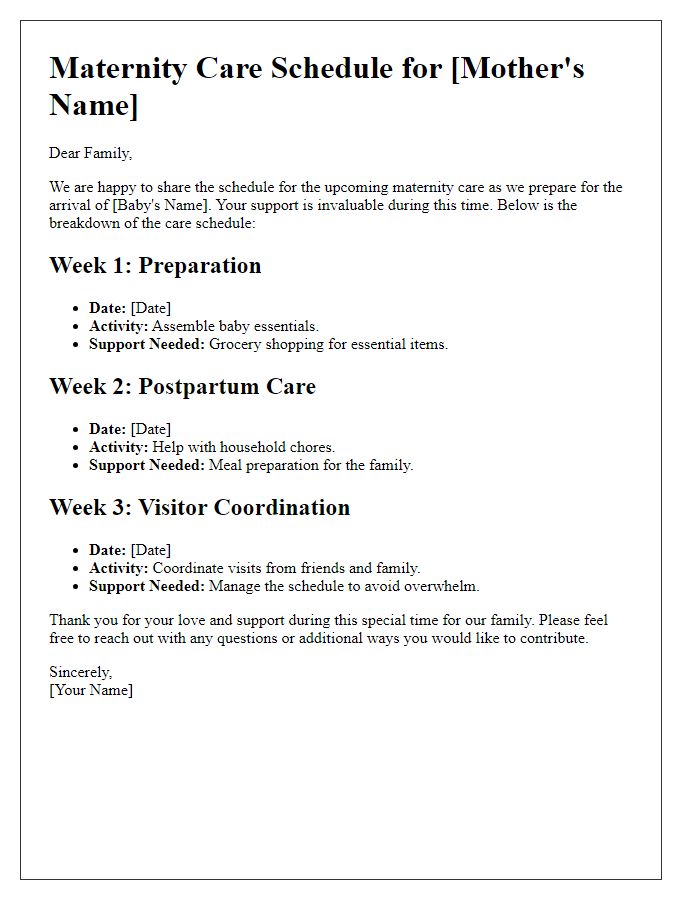
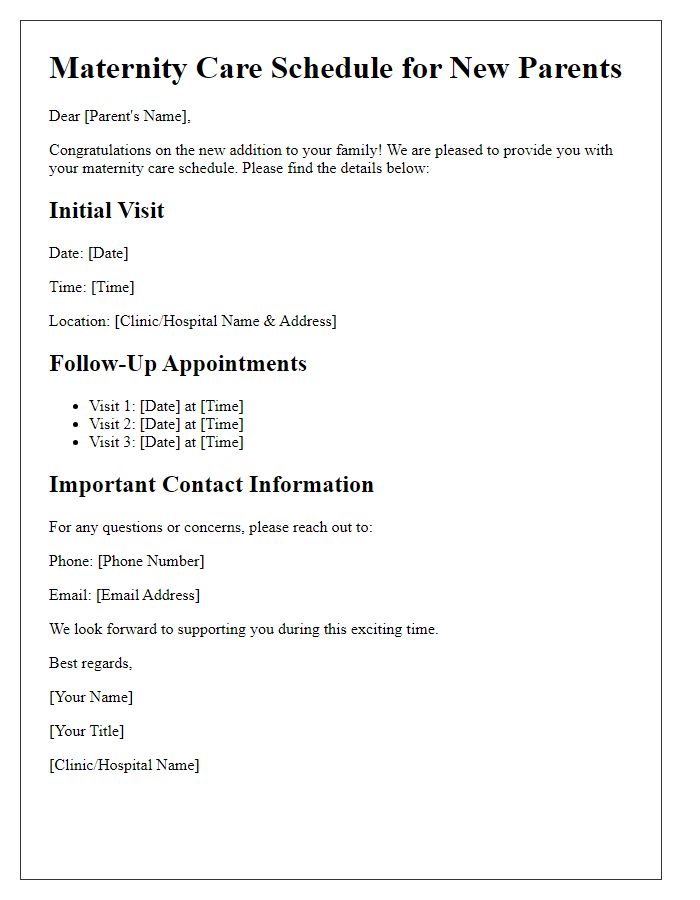
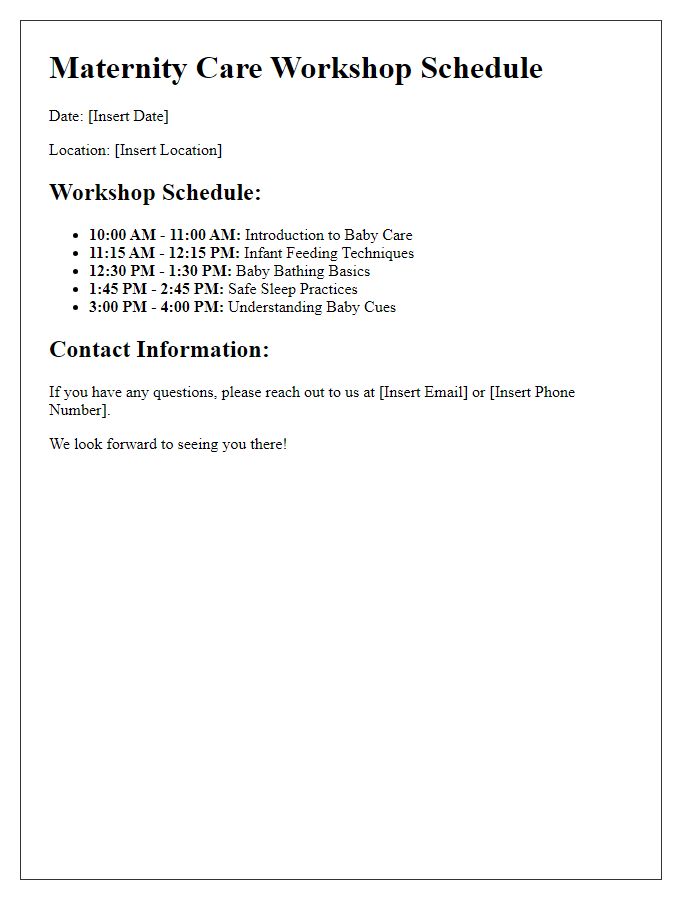

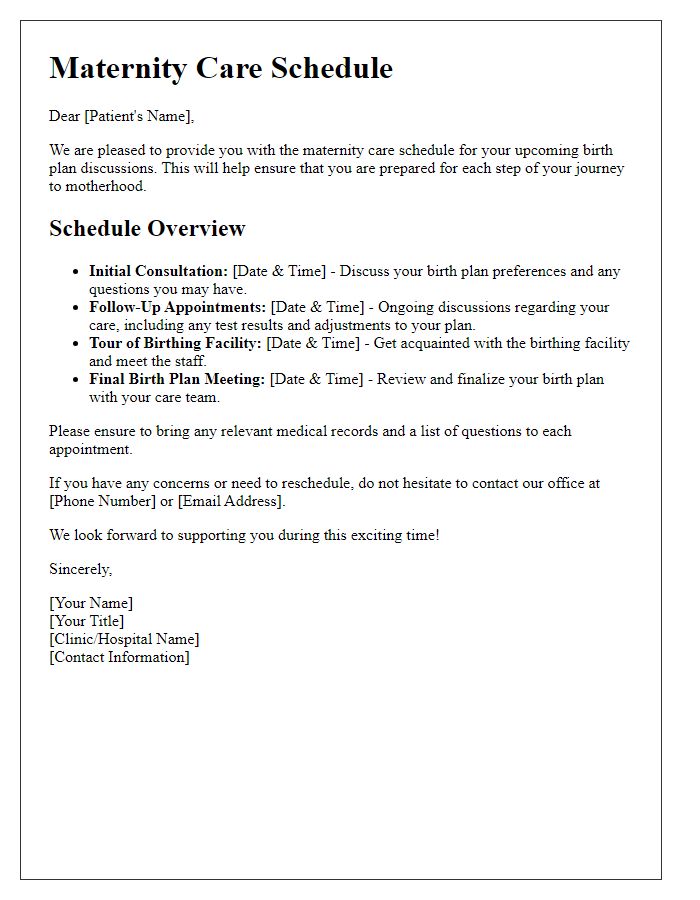

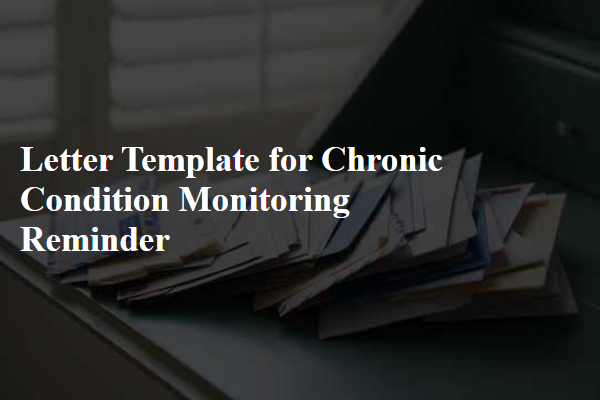
Comments